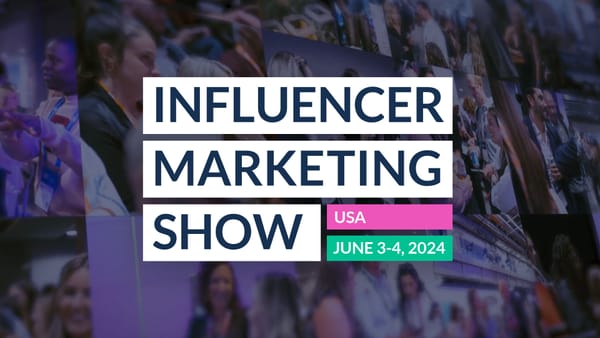Chris Kenna is the CEO of Brand Advance – an agency that helps brands reach diversity at scale and with authenticity through comprehensive data and insight, media planning and buying, partnerships and content services. As a black LGBTQ+ male, Kenna is committed to inspiring social change and using his influence for good. He chats to us about how brands can take action during times of societal conversation, give the LGBTQ+ community a voice, and run successful influencer campaigns with LGBTQ+ creators.
Brands are often criticised for jumping on the bandwagon for social movements such as Pride. What ways can they authentically take action during times of societal conversation?
The answer to authentically represent a demographic, during pride or black history month or any
other time is just to not only represent them during a specific time. We’re not just gay on pride
month, we’re not just black on black history month. It is to ensure that they are a part of your
every day, every week, every month, and every year communications.
Brands should want to reach that demographic in channels and media that they consume and
engage with all the time. It doesn’t matter about the past or what you’ve done before but look
to the future from this point forward. Question: “Are we engaging with this community
authentically on a daily basis?”
Do you have any tips for how brands can run a successful influencer campaign involving LGBTQ+ creators without being tokenistic?
An LGBTQ+ creator isn’t tokenistic, they are LGBTQ+, so just the very fact of working with them
isn’t being tokenistic. I think it comes down to when you’re working with them, yes you can do
something with them at Pride but also work with them throughout the year and build a relationship
with them.
They’ve built a relationship with their audience, now the brand needs to build a relationship with
them and go with their audience. There isn’t a specific way to an authentic campaign, you can
do an authentic campaign that resonates, or you can run a campaign that doesn’t have any
kickback, but that doesn’t automatically make it authentic. There is no silver spoon to authenticity as it is not a bottled upskill, it’s not a KPI. Authenticity is an emotion – a feeling that is earnt.
Can you give us some examples of brands or campaigns that are doing this well?
I know I’m talking about our work here, but I’m proud of the team! We did a London Queer Fashion Week, influencer hang out area and Zalando did lots of cool content. The money that Zalando paid didn’t just pay for the campaign, it went to London Queer Fashion show to enable it to be a bigger show. It was an experience in the environment in which that demographic was looking to find itself.
Consumers want to see more inclusive campaigns – how can brands give the LGBTQ+ community a voice?
The pillars of democracy are held accountable by the voices of the media. Democracy works
because the media holds it to account. Now if only certain parts of society are reflected in the
media and in that voice, only certain parts of society are going to be reflected in the
accountability of any part of the government of any nation.
Also, brands have a responsibility to make sure they are funding these voices that hold
individuals and governments to account. I’ve been on this earth 37 years and I don’t think I have
ever known such a turbulent time. As a black gay guy, it’s coming at me from every angle.
We’ve had everything taken away from us by COVID-19, so we know we can do without the latest
trainers or the latest mobile, so now I need a reason to start parting with my money, and that
reason is going to be sustainability, the environment. I’m going to put my spend into brands that speak to me regularly. Now is the time to seize the moment.
How can brands still show their support for the LGBTQ+ community in spite of social distancing and lockdown?
If brands think walking in a march is the beginning and end in their support for demographics,
then I’m sorry to say they’re badly mistaken. It’s a march because there’s no liberation yet.
When there’s liberation it will be a parade.
You can show support by digitally putting your ads in LGBTQ+ publications all year round, you
can engage through influencer campaigns and social media with demographics, you make sure
to engage in different ways if these platforms are not adhering to what you’re saying is your
brands standard.
We’ve just had boycott at Facebook. I personally have had racist and homophobic abuse
on Facebook. It’s time to make sure you’re allying, stop funding hate and fund good. It’s not
about where you’re not spending, it’s about where you should be spending.
What role do brand partnerships and diverse spokespeople have to play in all of this?
I think again, it’s a brand backing a voice that holds society to account and a brand putting their
money where their mouth is and saying “you are not just consumers to us, but you are part of
our brand.” This is done by meaningful partnerships, meaningful collaborations with influencers
or with different groups.
Can you tell us about some great creators actively using their voice to raise awareness?
Munroe Bergdorf, DarkwahKyei-Darkwah and LGTBQ+ celebrities. Tom Daley has done a lot
for bridging between brands and the LGBTQ+ community, the list goes on.
There are people all over, from small influencers to big celebrities that are feeling empowered to
be their authentic selves. There are people in the workplace that may not have a social following
or known person, but the very fact they go into work and bring their authentic selves into work,
they let others within the workplace see that you can be your true authentic self.
They are as much influencers as anybody with 100,000 followers on social media because
what is true influence? True influence is to help inspire and enable people to be better and true
to themselves.









